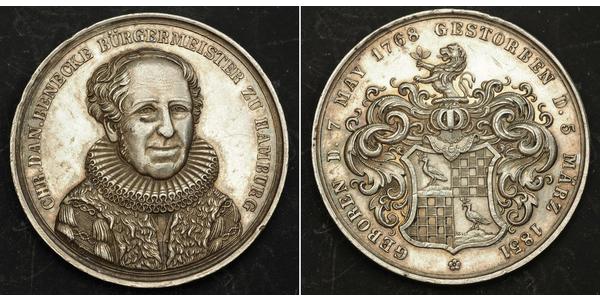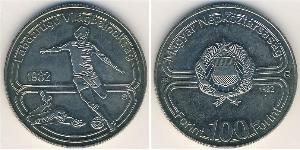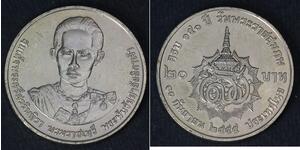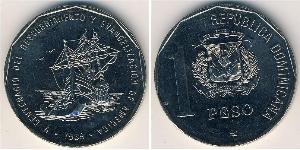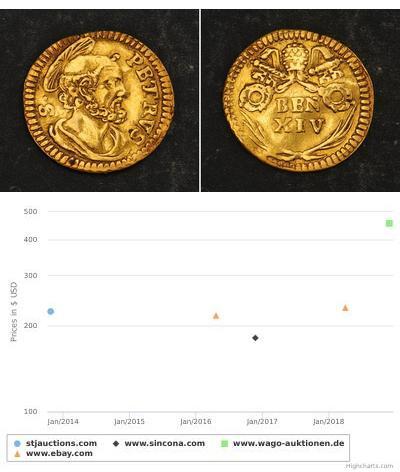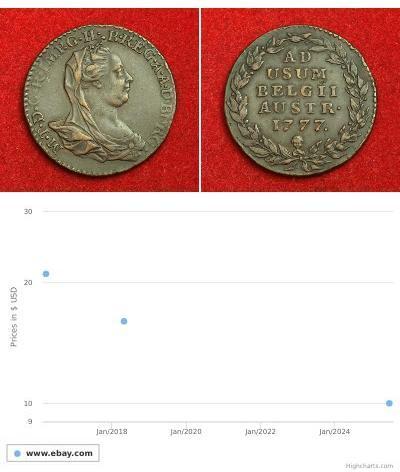(sold for $177.0)
1851, Hamburg (City). Silver "Christian Daniel Benecke (Mayor)" Memorial Medal.
Mint Year: 1851 Medallist: H. Lorenz Mint Place: Hamburg Reference: Gaedechtniss 2093. Conditino: Pitted by corrosion, minr deposits and a few scratches, otherwise VF+ Denomination: Memorial Medal - Christian Daniel Benecke (Mayor of Hamburg, 1835-1842) Weight: 29.16gm Diameter: 41mm Material: Silver
Obverse: Draped facing bust of Christian Daniel Beneckel (Mayor of Hamburg, 1835-1842). Legend: CHR.DAN.BENECKE BÜRGERMEISTER ZU HAMBURG Translated: "Crhistiand Daniel Benecke, Mayor of Hamburg" Reverse: Helmetted and plummed coat-of-arms of the Mayor, surrounded by his date of birth and passing. Legend: GEBOREN D.7. MAY 1768 GESTORBEN D. 5 MÄRZ 1851 * Translatged. "Born on 7th May 1768, Died on 5th May 1851"
The mayors are the head of the city-state, part of the government of Hamburg. Since 1861 according to the constitution of 28 September 1860 the state has been governed by the ten-member Senate, which had been called council (in the German language of that time: Rath) before that time. It is headed by the First Mayor of Hamburg (German title: Erster Bürgermeister der Freien und Hansestadt Hamburg) as the President of the Senate. His deputy is the Second Mayor. As Hamburg for much of its history was a free imperial city and later a sovereign state, the position of First Mayor historically was equivalent to that of a sovereign head of state. In the 1871–1918 German Empire, the Hamburg First Mayor was equivalent to the federal princes of the 23 German monarchies (4 of whom holding the title King and the others holding titles such as Grand Duke, Duke or Sovereign Prince).
Hamburg, officially Freie und Hansestadt Hamburg (Free and Hanseatic City of Hamburg), is the second largest city in Germany and the thirteenth largest German state. Its population is over 1.8 million people, and the Hamburg Metropolitan Region (including parts of the neighbouring Federal States of Lower Saxony and Schleswig-Holstein) has more than 5 million inhabitants. The port of Hamburg, on the river Elbe, is the second largest port in Europe (after the Port of Rotterdam) and tenth largest worldwide.
The official name reflects its history as a member of the medieval Hanseatic League, as a free imperial city of the Holy Roman Empire, a city-state, and one of the 16 states of Germany. Before the 1871 Unification of Germany, it was a fully sovereign state. Prior to the constitutional changes in 1919, the stringent civic republic was ruled by a class of hereditary grand burghers or Hanseaten.
Hamburg is a major transport hub and is one of the most affluent cities in Europe. It has become a media and industrial centre, with plants and facilities belonging to Airbus, Blohm + Voss and Aurubis. The radio and television broadcaster Norddeutscher Rundfunk and publishers such as Gruner + Jahr and Spiegel-Verlag are pillars of the important media industry in Hamburg. Hamburg has been an important financial centre for centuries, and is the seat of the world's second oldest bank, Berenberg Bank.

|
Posted by:
anonymous 2018-05-10 |

